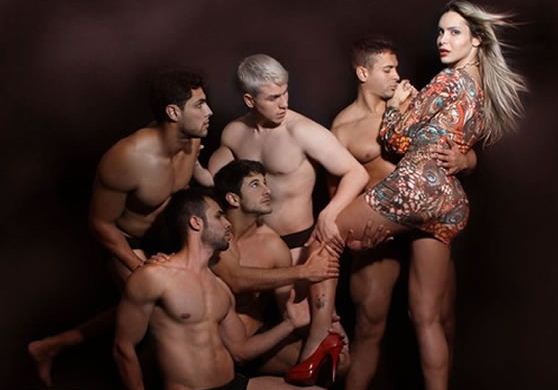Published: 25 January 2013
Country: UK
 From the day Suzanne Moore, the columnist of the Guardian and the New Statesman, published the controversial remarks on transgender people, British media entered into a heated debate over apparent ‘transphobia’.
From the day Suzanne Moore, the columnist of the Guardian and the New Statesman, published the controversial remarks on transgender people, British media entered into a heated debate over apparent ‘transphobia’.

Authors and readers involved in posting comments, tweeting and publishing their opinions on this matter, question the attitude of some prominent feminist commentators such as Moore and her friend and fellow writer Julie Burchill.
The Press Complaints Commission is to launch an inquiry into the publication of Julie Burchill’s controversial column that caused an outrage among transgender population. The commission decided to act after receiving 800 complaints.
This media debate has started when Moore published her article in the New Statesman after which the wave of condemnation and hostile comments, especially on Twitter, followed. The one who stood up to ‘defend’ Moore writing a column for the Observer was her friend and colleague Julie Burchill. Her column was soon withdrawn by the newspapers’ editor John Mulholland but reappeared in the Telegraph.
Because Burchill’s article turned from “an attempt to explore contentious issues” to “a highly-charged debate”, the Observer’s editor has decided to withdraw the piece from its online version admitting the paper had “got it wrong”. But the media commentators are still divided whether the Burchill’s column should have been taken down and whether the two prominent UK columnists “had it wrong”.
For Louise McCudden, the author of a comment in the Independent, there is no question whether Moore and Burchill issued offensive and discomforting statements on transgender community, but why “the time has come for feminists to actively speak up about the shameful and sometimes deliberate failure to engage with, listen to, and support trans people within our own communities”.
“Not only does transphobia shine bright lights on sexist assumptions about us all and help so often to show them up as inaccurate nonsense, but transgender people live through a reality of gender-based oppression that most cis women can barely imagine. We should be on their side. Far from its victims being part of the problem, the culture that facilitates transphobia is so very often the same culture that perpetuates sexism”, argues McCudden in the Independent. The discussion amongst the British columnists as well as the comments of the readership and the social media audience has induced the title “Feminists versus transsexuals: Julie Burchill, Suzanne Moore and The Observer spark civil war on the Left” in the Telegraph. But Moore dismissed herself from the Left claiming instead to be on the side of liberation.
“I certainly check my privilege all the time. People died for my right to offend you. I live for a left that is about freedom, a sexual politics that is about choice,” says Moore in the Telegraph.
Questioning the possibility of a censorship in Burchill’s case and arguing that her column never should have been taken from the Observer’s online edition, Roy Greenslade, professor of Journalism at London City University and the Guardian’s commentator, addresses the issue of media representation that transgender people get. “I can imagine many transsexuals being very upset at the insulting generalisations. The lobby Burchill refers to doesn’t strike me as unduly powerful. Similarly, I don’t think Burchill was articulating underlying prejudice against transsexuals. I am more certain that nothing she wrote was likely to incite people to take violent action against transsexuals. I’m not even sure that it brought them into disrepute,” wrote Greenslade.
Not everyone would agree with Greenslade especially more than 100 transgender people and supporters who have staged a peaceful protest outside the Guardian and the Observer offices in London. Organisers of the gathering said the Burchill’s column was “transphobic hate speech” and a “deliberate baiting” of a community that is already the subject of widespread social abuse and ridicule.